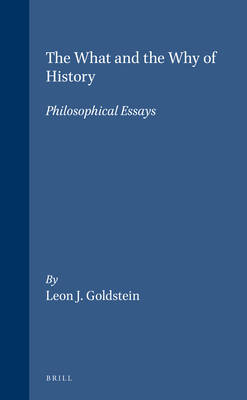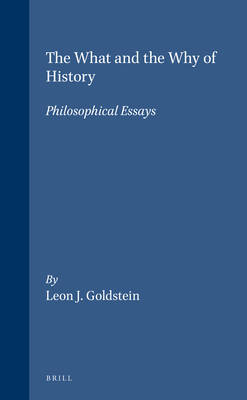
- Afhalen na 1 uur in een winkel met voorraad
- Gratis thuislevering in België vanaf € 30
- Ruim aanbod met 7 miljoen producten
- Afhalen na 1 uur in een winkel met voorraad
- Gratis thuislevering in België vanaf € 30
- Ruim aanbod met 7 miljoen producten
Zoeken
Omschrijving
The What and the Why of History deals with history as a cognitive discipline concerned to establish justifiable knowledge about a past we can never experience.
It is divided into three parts. The first focuses on the conditions that are presupposed when historians offer explanations of what they have come to know. But whatever is to be explained must first come to be known, and the second part is concerned with the character of the cognitive activity which is the constitution of the historical past. The point is that we must attend to the historical enterprise on its own terms, and not try to make it fit the epistemology of natural science or of common sense.
The last section deals with Collingwood. It is shown that his characteristic positions contribute to an account of historical knowing, not historical explanation.
It is divided into three parts. The first focuses on the conditions that are presupposed when historians offer explanations of what they have come to know. But whatever is to be explained must first come to be known, and the second part is concerned with the character of the cognitive activity which is the constitution of the historical past. The point is that we must attend to the historical enterprise on its own terms, and not try to make it fit the epistemology of natural science or of common sense.
The last section deals with Collingwood. It is shown that his characteristic positions contribute to an account of historical knowing, not historical explanation.
Specificaties
Betrokkenen
- Auteur(s):
- Uitgeverij:
Inhoud
- Aantal bladzijden:
- 368
- Taal:
- Engels
- Reeks:
- Reeksnummer:
- nr. 15
Eigenschappen
- Productcode (EAN):
- 9789004103085
- Verschijningsdatum:
- 1/01/1996
- Uitvoering:
- Hardcover
- Formaat:
- Genaaid
- Afmetingen:
- 164 mm x 241 mm
- Gewicht:
- 784 g

Alleen bij Standaard Boekhandel
+ 491 punten op je klantenkaart van Standaard Boekhandel
Beoordelingen
We publiceren alleen reviews die voldoen aan de voorwaarden voor reviews. Bekijk onze voorwaarden voor reviews.








